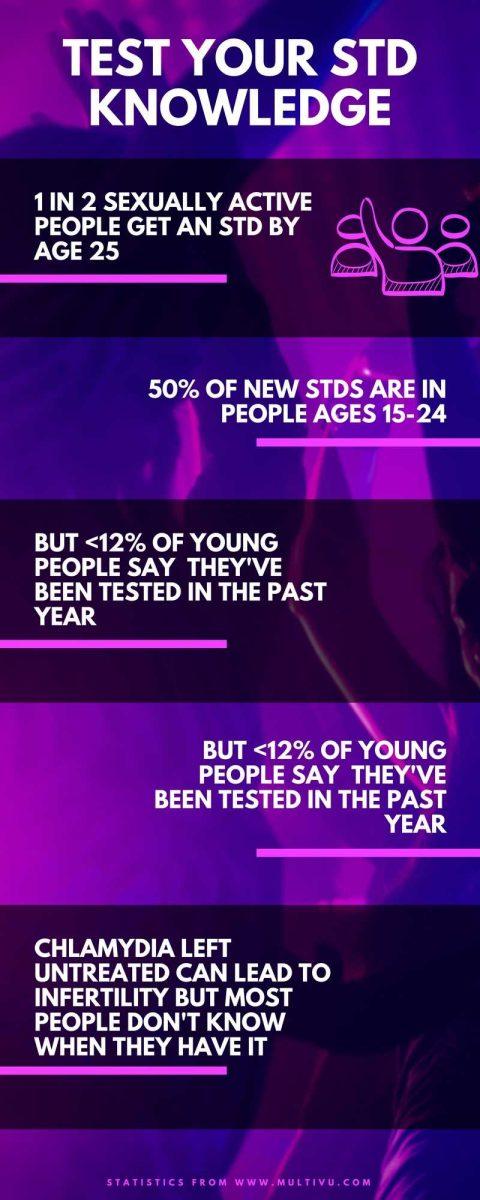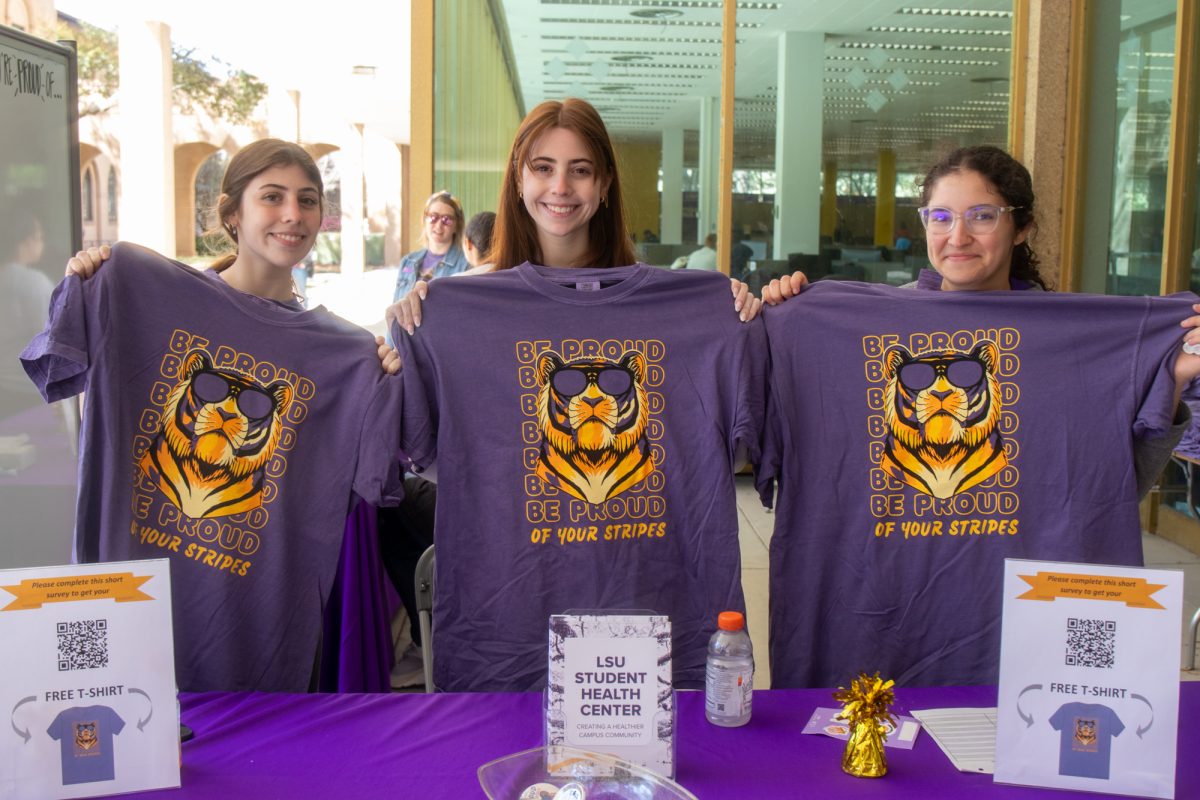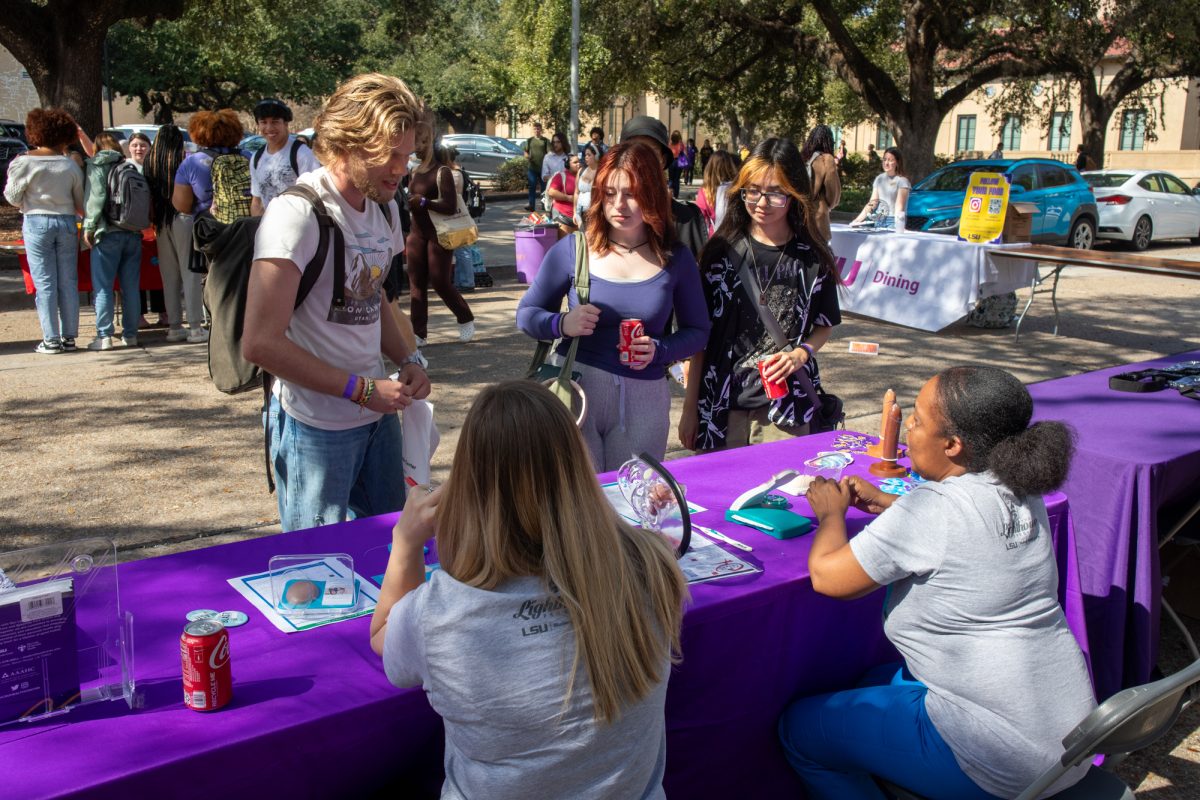According to the American Sexual Health Association, 50 percent of new STD cases come from young people aged 15 to 24. However, fewer than 12 percent say they’ve been tested for sexually transmitted diseases.
While in college, then 25-year-old Lauren* was diagnosed with chlamydia, a bacterial infection easily cured with antibiotics. According to the CDC, nearly 1.5-million Americans are diagnosed with chlamydia every year, and most of them are between 14 and 24 years-of-age.
“I never had a problem getting tested,” Lauren said. “The reason people feel dirty or ashamed [about having an STD] is because of the stigma, but you can’t tell someone has an STD by looking at them.”
Studies show that one in two college-aged people will get an STD before the age of 25. One reason for the spread of these diseases is a lack of good communication between sexually active partners.
“I knew that I needed to tell my partners, but the reaction was terrible,” Lauren said. She told her partner via text message, but he lashed out by calling her names. “I guess he didn’t believe that it could’ve been him.”
Lauren added that there are ways to tell a partner anonymously with programs like “dontspreadit.com.” With this service, a user can simply enter the name and phone number of the person and a discrete message will be sent to them, along with what their next steps should be.
A new initiative launched by the American Sexual Health Association seeks to change the message on STD testing. Yes Means Test, encourages young adults who say “yes” to sexual activity to say “yes” to being tested for STDs. Their website helps people to find “free, fast and confidential testing” at a location convenient for students.
Comedian Whitney Cummings, creator of the TV show “2 Broke Girls” and spokesperson for Yes Means Test, hopes that the company can help to normalize STD testing among young people.
“This generation has become so outspoken about other important topics related to sexuality, so why not STDs,” Cummings said in a statement. “I want to remind people that getting tested for STDs should go hand in hand with making the choice to have sex.”
While Lauren displayed symptoms before her diagnosis, most women do not.
“You need to get tested, that’s the only way to know for sure,” Lauren said. “If you don’t treat this you can put yourself at risk for infection, cancer and make yourself more susceptible to HIV. This is not something to ignore.”
Lauren also said young people need to change the negative attitudes regarding the use of condoms.
“If a guy is refusing to wear a condom, that is not safe,” Lauren said. “If he’s taking the condom off without telling you, that is dangerous.”
Lauren said what surprised her after being diagnosed was learning about the lack of sex education in the United States.
“Sex education is only mandated in 24 states and that’s problematic,” Lauren said. “When I told my mom I had Chlamydia she had no idea what the treatment method was, and I didn’t either, but it’s simple.”
From Sept. 6-8, the LSU Student Health Center will host the final day of “Safety, Sun and Sex Week” in free speech plaza. This event will offer information on healthy relationship, safe sex practices and coupons for free STD testing at the SHC.
*Editor’s note: Lauren is an ambassador for the American Sexual Health Association. She requested to use the name “Lauren,” listed on the website, to preserve her identity.
**Editor’s Note: This report previously referred to the American Sexual Health Association as the American Speech-Hearing Association. It has been updated to show the organization’s correct name. The Daily Reveille regrets this error.
New organization aims to promote STD testing among college students
By Abbie Shull
August 31, 2017
STD Graphic
More to Discover










